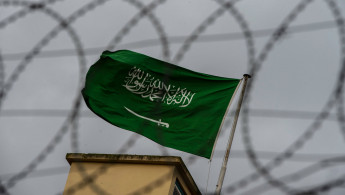Saudi Arabia deposits $250m in Sudan's central bank
Saudi Arabia announced it deposited $250 million in Sudan's central bank as part of a support package for the country following the overthrow of longtime leader Omar al-Bashir.
"The ministry of finance has deposited 937.5 million Saudi riyals into the central bank of Sudan," the ministry said in a statement.
In April, Saudi Arabia and the United Arab Emirates announced three billion dollars (2.7 billion euros) in financial aid for Sudan.
"$500 million has been provided by both countries... to strengthen its financial position," the kingdom's finance ministry said.
The UAE said on April 28 it was depositing $250 million in Sudan's central bank.
The oil-rich Gulf states pledged to inject $500 million into Sudan's central bank and $2.5 billion to help provide food, medicine and petroleum products, the official Saudi Press Agency (SPA) said last month.
It said the move was aimed at shoring up the Sudanese pound.
In recent years Sudan has been hit by an acute lack of dollars, a key factor behind the nationwide protests that first erupted in December and led to the toppling of Bashir by the army last month.
Sudan plays a key role in the regional interests of Saudi Arabia and its allies, siding with Riyadh against Iran and providing troops in the Saudi-led coalition fighting in Yemen's war.
Both Gulf nations have voiced backing for Sudan's military rulers, who are facing calls from protesters to cede power to a civilian transitional government.
The Sudanese currency had plunged even after the United States lifted its 20-year-old trade embargo on the country in October 2017.
Expectations that the end of US sanctions would bring an economic recovery failed to materialise, putting pressure on the pound.
The country's economic crisis has deepened since the secession of South Sudan in 2011 that took away the bulk of oil earnings.
Follow us on Twitter: @The_NewArab





 Follow the Middle East's top stories in English at The New Arab on Google News
Follow the Middle East's top stories in English at The New Arab on Google News
![The UAE is widely suspected of arming the RSF militia [Getty]](/sites/default/files/styles/image_330x185/public/2024-11/GettyImages-472529908.jpg?h=69f2b9d0&itok=Yauw3YTG)
![Netanyahu furiously denounced the ICC [Getty]](/sites/default/files/styles/image_330x185/public/2024-11/GettyImages-2169352575.jpg?h=199d8c1f&itok=-vRiruf5)
![Both Hamas and the Palestinian Authority welcomed the ICC arrest warrants [Getty]](/sites/default/files/styles/image_330x185/public/2024-11/GettyImages-2178351173.jpg?h=199d8c1f&itok=TV858iVg)